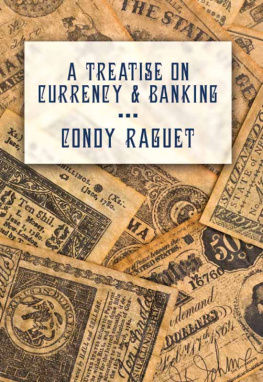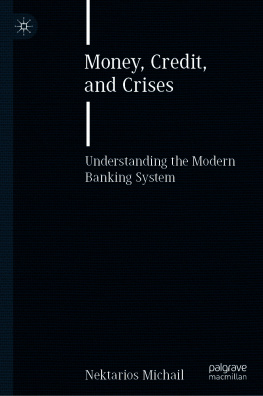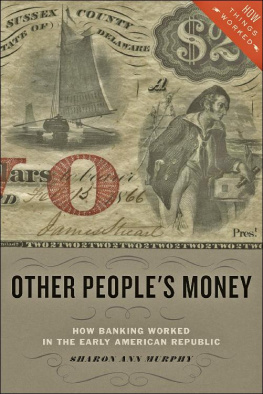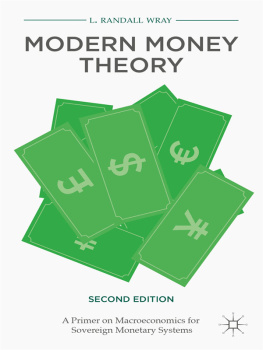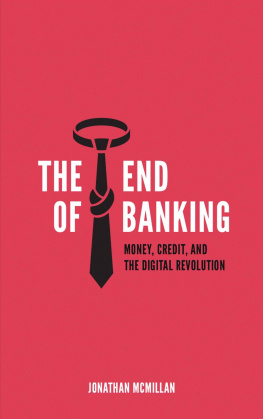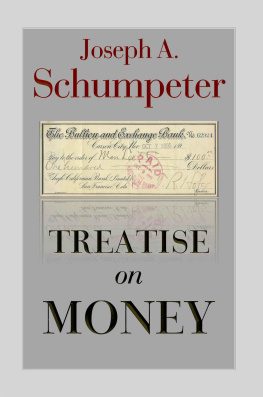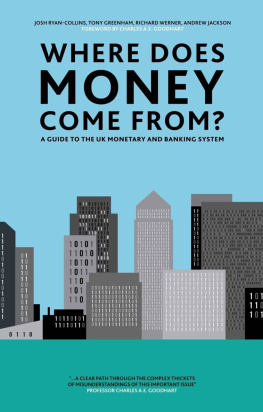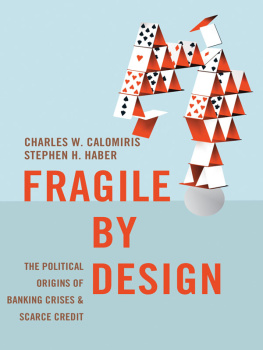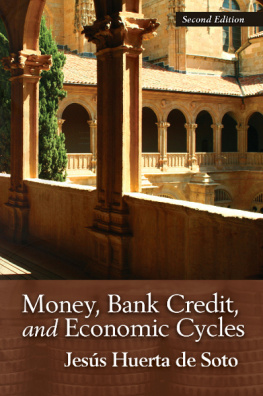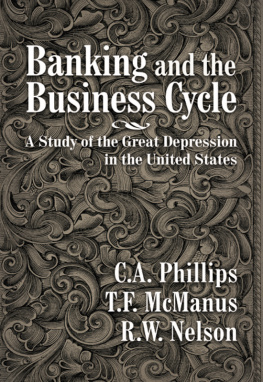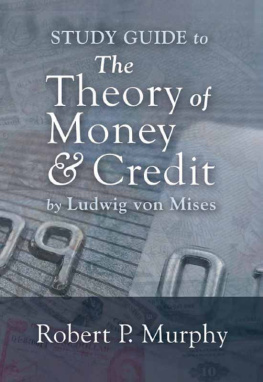
CURRENCY & BANKING
A
TREATISE
ON
CURRENCY & BANKING
BY
CONDY RAGUET
2nd Edition
[1840]

Reprints of Economic Classics
Augustus M. Kelley Publishers
New York / 1967

First Edition 1839
Second Edition 1840
( Philadelphia: Grigg & Elliot, 1840 )
Reprinted 1966 by
Augustus M. Kelley Publishers
Library of Congress Catalogue Card Number 65-26375
PRINTED IN THE UNITED STATES OF AMERICA
by SENTRY PRESS, NEW YORK, N. Y. 10019
A TREATISE
ON
CURRENCY AND BANKING.
___________
BY
CONDY RAGUET, LL.D.,
MEMBER OF THE AMERICAN PHILOSOPHICAL SOCIETY; PRESIDENT OF THE CHAMBER OF COMMERCE OF PHILADELPHIA; LATE CHARGE DAFFAIRES OP THE UNITED STATES AT THE COURT OP BRAZIL, AND AUTHOR OF THE PRINCIPLES OF FREE TRADE ILLUSTRATED.
___________
It is the interest, of every country that the standard of its money, once settled, should be inviolably and immutably kept to perpetuity. For whenever that is altered, upon whatever pretence soever, the public will lose by it.
Men in their bargains contract, not for denominations or sounds, but for the intrinsic value.LOCKE ON MONEY.
___________
Second Edition.
PHILADELPHIA:
GRIGG & ELLIOT, BOOKSELLERS, No. 9 NORTH FOURTH STREET,
1840.
Entered, according to act of congress, in the year 1839,
BY CONDY RAGUET,
In the office of the clerk of the District Court of the Eastern District
of Pennsylvania.
TO
CLEMENT C. BIDDLE, ESQ.
AS A MARK OF RESPECT,
DUE TO AN ENLIGHTENED POLITICAL ECONOMIST, AND
AS A TESTIMONIAL OF A FRIENDSHIP,
COMMENCED IN CHILDHOOD, CONTINUED WITHOUT INTERRUPTION FOR MORE THAN FORTY YEARS, AND STRENGTHENED BY A HARMONY OF OPINION ON MOST OF THE POLITICAL SUBJECTS THAT HAVE OF LATE DIVIDED THE PEOPLE OF THE
UNITED STATES,
AND ESPECIALLY ON THOSE OF
CURRENCY AND BANKING,
THIS WORK IS, WITH SENTIMENTS OF THE
MOST AFFECTIONATE REGARD,
DEDICATED BY
THE AUTHOR.
TABLE OF CONTENTS.
___________
PREFACE.
THE suspension of specie payments by all the banks in the United States, south of New England, in the year 1814, and of all, with a very few trifling exceptions, in the year 1837, has strongly impressed the public mind with the belief that there is something defective in the present banking system of this country; and it is not, perhaps, venturing too much to assert, that there are now elements at work, which will ultimately overthrow the whole fabric, unless those who have the power to remedy the evil, shall introduce the reforms which can alone render a repetition of such a calamity impossible.
It must be evident to every observant mind, that a dislike to hear the truth, when opposed to ones interests or prejudices, is the principal cause of a large portion of the mischievous errors which so generally prevail. Men of education and capacity, who are best qualified to investigate and understand the important principles which belong to the science of public economy, are too apt to view them as of no account, or to despise them when they come in conflict with their purses, or with their political promotion; and hence that knowledge, which is the most entitled to regard, because most intimately connected with the prosperity of a country, is of all others the most neglected. I assert it, and, in so doing, I think I do not overestimate its value, that political economy is the most important of sciences; and if its practical branches were introduced as a study into all our colleges and principal schools, it would do more towards exempting the country from erroneous and destructive legislation, than any other study to which the attention of our youth could be directed.
Of these practical branches, the science of banking is one, but it is one, to the attainment of a knowledge of which there is no royal road. any more than there is to any other species of learning. He who wishes to understand it, must study and reflect, and this not with the feelings of a partisan, but in the true spirit of philosophy, unbiassed by self-interest, or by any other consideration than a pure love of the truth. The rapid strides which the banking system has been making of late in France and other countries of Europe, accompanied, as it has been, by indications of unsoundness, in Belgium and elsewhere, gives just ground for apprehension, that the same spirit which has characterised the management of most of our institutions, as well as those of Great Britain, producing alternate expansions and contractions of the currency, to the great injury of the public, will also there extensively prevail. In such event, the check to over-issues in this country and England, which now exists from the reaction of the metallic currencies of continental Europe, would be greatly diminished, and in consequence of it, inflations and convulsions hitherto unknown in the commercial world, because extended over a wider field, would most certainly overtake us all. That the interests of a country are best to be promoted by a stable currency, precisely as they are by a fixed standard of weights and measures, will hardly be disputed; and if it can be shown, that a defective, or mismanaged banking system, produces exactly the same results upon the pursuits of industry, and the property of individuals, as would the decrees of a despot, who should alter, at his pleasure, without any previous notice, as often as he thought it expedient, the weight of the pound, or the length of the yardstick, it is to be hoped that there is not a patriot in the land, who would hesitate to assist in the entire eradication of such a monstrous evil. That such is the effect of our present system, as it has been of late conducted, must be obvious to all who have closely examined its operations, and hence the necessity, before it is too late, of an application of the appropriate remedy.
The author of this treatise in offering it to the public, has no private ends to promote. He has been for twenty years a student of the science which he proposes to discuss, and has during that time in some reports to the senate of Pennsylvania, and in many detached publications, presented his views in relation to currency and banking; and if in the present volume there should appear here and there an expression familiar to the reader from former acquaintance, he may be assured that not a phrase has been employed as original, which is not his own property. He knows that in his opinions respecting the influence and operation of banks of circulation, upon the public prosperity, he differs from some of his personal friends, and from many others engaged in the management of such institutions, for whose intelligence and purity of character he entertains the highest respect. But the truths of science cannot be forced to accommodate themselves to mans imperfection or interests. If what he advances be not such truths, they can be easily refuted, and he invites the severest criticism to be applied to his doctrines, in order that their solidity may be tested, and if found to be false or unstable, that their true character may be exposed. If, on the other hand, the principles which he asserts, be in reality, as he honestly believes them to be, incontrovertible truths, he will not do any of his readers the injustice of supposing, that they would reject them, because they are not profitable.

